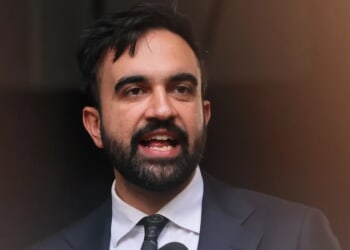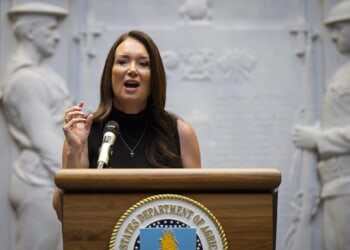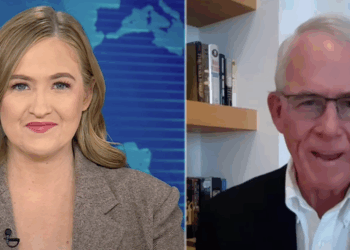With good reason, the Trump administration is prioritizing the reduction of drug prices, aiming to make meaningful changes before mid-October. This issue is pressing, as prescription drug spending in America reached over $800 billion in 2024, marking an increase of more than 10% from the previous year.
The burden of these escalating costs is not solely on insurance companies’ profits. Taxpayers contribute billions through government programs such as Medicare, Medicaid, and Veterans’ benefits. American families also feel the pressure, having spent $98 billion out-of-pocket on prescriptions last year, in addition to higher insurance premiums.
Commerce Secretary Howard Lutnick recently expressed strong opinions on this topic, attributing much of the problem to foreign countries that refuse to pay fair market prices for drugs. As a result, pharmaceutical companies compensate by charging Americans more. (RELATED: Big Pharma Tax Loophole Costs Americans Over $1 Billion Per Year, According To Recent Study)
Secretary Lutnick illustrated the disparity: “Let’s say it cost $10 to make a pill. The other countries say, ‘I’ll give you $15,’ and [Americans are] paying $100.” President Trump’s Most Favored Nation policy seeks to correct this by ensuring that if other countries pay more, Americans can pay less. As Secretary Lutnick explained, the policy would require drug manufacturers to offer higher prices abroad to have access to the American market.
Studies show that Americans pay nearly three times more for prescription drugs than people in 33 other developed nations. While it is important for pharmaceutical companies to recover their substantial research and development investments, it is unreasonable for Americans to bear this cost disproportionately. President Trump’s policy would ensure that American consumers are not the only ones shouldering these expenses.
Another reason Americans continue to pay high prices is the way pharmaceutical companies use the patent system and legal processes to delay generic competition. These generics typically cost 80 to 85 percent less than brand-name drugs. While patent protection is necessary to reward innovation with temporary monopolies, legal tactics can extend these monopolies beyond what the free market would allow.
Problems arise when lawyers file multiple overlapping patents on a single drug and use these patents to file lawsuits against any generic competitors, even after initial patents expire. Although most of these lawsuits do not succeed in court, they are effective in delaying generic competition, extending the period of high profitability for brand-name drugs. In some cases, the financial burden of litigation forces competitors out of the market altogether.
The Hatch-Waxman Act of 1984 was designed to prevent such abuses by stipulating that patent disputes should be resolved in a single lawsuit within 30 months. However, some companies exploit loopholes by holding back certain patents and only asserting them after losing initial cases, thereby prolonging litigation and delaying generic drug entry beyond the intended timeline.
To address these issues, Americans should support amending the Hatch-Waxman Act. All patents and potential claims related to a protected product should be brought forward in the first lawsuit—one product, one lawsuit. This would help lower drug costs more quickly, in line with the original intent of the law.
Supporting innovation and rewarding lifesaving drug development remains important, which is why reasonable patent protections exist. However, generic drug manufacturing must proceed on a fair and timely basis.
If the market for manufacturing generic drugs within the United States remains limited or faces obstacles, it becomes increasingly difficult to reduce dependence on foreign sources such as China. This challenge underscores the importance of developing and supporting a robust domestic generic drug manufacturing industry to strengthen national security.
President Trump’s executive order to reduce drug prices highlights further steps that can be taken. Attorney General Pam Bondi and FTC Chair Andrew Ferguson have the authority to use antitrust and consumer-protection laws to stop anti-competitive practices, challenge settlements that keep generics off the shelves, and take enforcement actions against companies that manipulate the system.
By working together on these reforms, Americans can finally receive relief at the pharmacy counter. Achieving lower drug costs would be a policy victory with lasting impact for future generations. It is possible to make this happen. It can be done!
Dr. Brad Wenstrup represented Ohio in the U.S. House of Representatives from 2013 to 2025, where he was Co-Chair of the GOP Doctors Caucus and served on the Ways and Means and Intelligence Committees. He currently serves on President Donald Trump’s Intelligence Advisory Board.
The views and opinions expressed in this commentary are those of the author and do not reflect the official position of the Daily Caller News Foundation.
All content created by the Daily Caller News Foundation, an independent and nonpartisan newswire service, is available without charge to any legitimate news publisher that can provide a large audience. All republished articles must include our logo, our reporter’s byline and their DCNF affiliation. For any questions about our guidelines or partnering with us, please contact licensing@dailycallernewsfoundation.org.

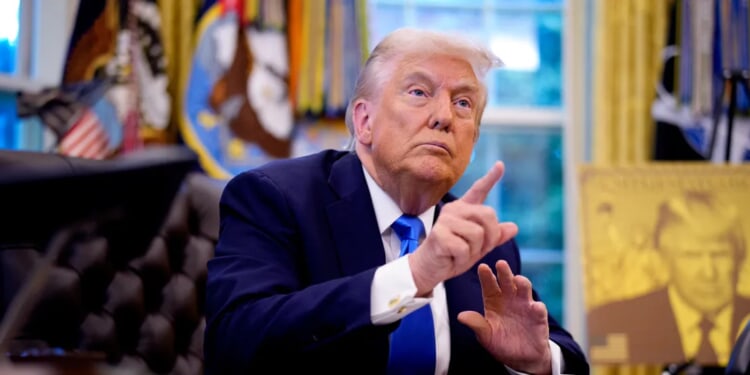







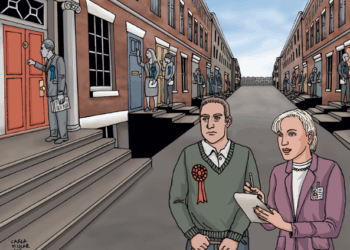
![Donald Trump Slams Chicago Leaders After Train Attack Leaves Woman Critically Burned [WATCH]](https://www.right2024.com/wp-content/uploads/2025/11/Trump-Torches-Powell-at-Investment-Forum-Presses-Scott-Bessent-to-350x250.jpg)
